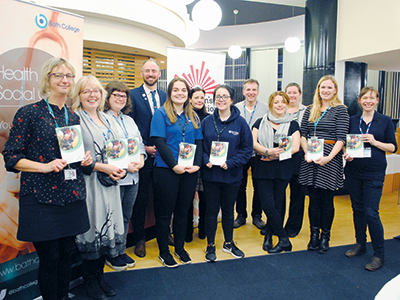Bath College is helping to pilot an initiative at a local supermarket that gives people with dementia and additional needs the space, support and time to complete their weekly shop in comfort, reports Samantha King.
Seven of the college’s health and social care students will help run the ‘Slow Shopping’ project at their local branch of Waitrose, where each Tuesday between 10 and 12 in the morning, lights will be dimmed, tannoys switched off, background noise limited and extra seating made available for shoppers who may become overwhelmed in an everyday supermarket environment.

The project was started by Katherine Vero, after experiencing her own mother’s struggles with dementia while shopping, and projects are already established in branches of ASDA, Tesco and Sainsbury’s in Newcastle and Essex.
“I heard Katherine on Radio 4, and afterwards I contacted her and said I’d really like to work with her, and that the students could learn a lot from this,” said Sally Wilson, the care academy coordinator at Bath College. “She loved the idea of an intergenerational project where young people are supporting those who are often elderly, but not always. The joy of slow shopping is that it’s for any shopper with additional needs.”
It is the first time a slow shopping project has involved students, and Ms Vero has visited learners and Waitrose staff together to train them in how to run the project, which involved a tour of the shop floor to identify any potential barriers for shoppers.
The joy of slow shopping is that it’s for any shopper with additional needs
“They walked around the store and imagined it through the eyes of someone they may have worked with or cared for,” Ms Wilson said. “If you have Alzheimer’s for instance, it’s difficult to know when you come out of the toilets where the store entrance is, and people can become quite disorientated. It’s about learning what simple things can be done to help.”
The project, which has received funding from the St John’s Foundation, a charity that works with Bath’s elderly population, ran for the first time earlier last week, and has already received glowing feedback from the local community.
“We would love for other colleges to pick up and run with this,” Ms Wilson added. “Often with health and social care you’re working in settings geared up towards supporting people, but this is day-to-day life in a real world environment.”

Your thoughts